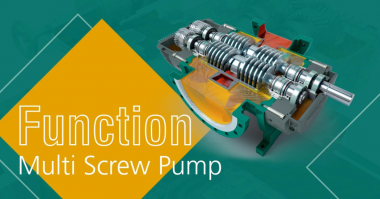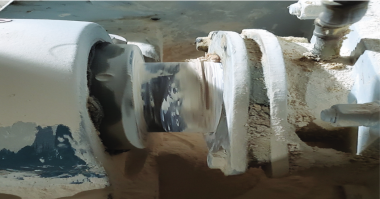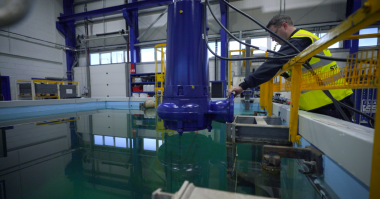Cold weather can make some common pump problems more likely to occur, which can wreak havoc on industrial operations. However, such issues are less likely when people take the proper preventive measures. Here are some actionable tips.
Use an Anti-Freezing Agent If Appropriate
Depending on the pump type and its components, an easy winterization tip is often to add antifreeze to every place water could come in contact with the system, from the pump and beyond. Antifreeze intended for cars or recreational vehicles is the best option —avoid using windshield wiper fluid. Although it has a similar effect on preventing freezing, the fluid can damage the pump’s seals.
Some manufacturers also sell winterizing kits to accompany their pumps. Those sets often come with special antifreeze blends suited to particular applications. In the consumables industry, for example, pumped water systems need food-grade glycol as an antifreeze.
Similarly, pump manufacturers discuss operating temperature ranges in the manuals for their products. Those are excellent reference points for people using specific pumps in cold weather for the first time.
Prevent Common Pump Problems Through Usage
Safety risks can become more likely when no one adequately services the pumps. In the same way industrial company representatives must take precautions regarding employees working in cold weather, they must exercise similar planning when ensuring pumps are ready for the chilly temperatures. One way to do that is to get the pumps serviced before winter hits.
Some technicians say the most frequent issues arise because clients have left pumps unused for months. If a client stops using a pump for six months before trying to turn it on in the winter, standing water left in the system could cause internal corrosion that spreads to the impeller.
So, the best thing is to keep pumps running without long usage lapses. However, if that’s not an option, technicians can advise about treatment programs for the pump and its surrounding components that will discourage corrosion.
Consider Relying on Smart Sensors
Modern manufacturers increasingly use smart sensors throughout their facilities to keep everything running smoothly. These products can often collect real-time data, letting people immediately see if things are amiss.
IoT sensors for pumps collect information about everything from cycle status to abnormal vibrations. In addition to seeing what’s happening at the moment, people can review historical statistics. Having such data accessible allows them better visibility that could result in preventing common pump problems rather than dealing with them later and potentially shutting down part of a factory to do so.
Install Insulation or a Heating Mechanism
Another strategy to stop common pump problems from happening in cold weather is to use a source of insulation or heat. Insulation blankets work well for above-ground well pumps.
People can also use tracing ribbon on and around pipes as a heat source. It often has a built-in thermostat so the heat activates as soon as ambient air falls below a specific temperature.
It’s also worth investigating pump insulation jackets. These usually come in specialized shapes and sizes, making them fit snugly around some of the most frequently used industrial pumps.
Planning Reduces Pump-Related Cold-Weather Catastrophes
People working in industrial sectors must take many protective measures to stop cold weather from disrupting operations. Pumps can sometimes get overlooked until it’s too late, resulting in costly repairs or replacements. However, these straightforward tips will help people take the proper actions promptly.





Comments